When she was in Washington, Hillary Clinton often rushed to the White House to meet with visiting dignitaries, to hash out policies toward the world’s trouble spots and to shore up a once-rocky partnership with President Obama. On the road, she kept a breakneck pace of international travel. At home or abroad, she endured marathon calls and meetings with world leaders, often scheduled in 15 minute blocks. She started her schedule before dawn most days and, when she got to her home or her hotel in the evenings, yet another briefing book was waiting for her there to study.
Yet between it all, she kept her dry sense of humor, her generous approach with her trusted staff and loyalty to those who had known her for decades. Her boosters for years have insisted the hard-nosed and calculating caricature of Clinton that has emerged in the public eye is not recognizable to those closest to her. She is, they have insisted for years, one of the best bosses they’d ever had.
Aides told Clinton who was having birthdays, which State Department employees were grieving and which ambassadors and envoys were becoming troublesome, according to a trove of her emails released Tuesday. Amid the whirlwind, she was trying to do her best to carve out time for herself and her friends. In one email, Clinton told her aides that there was a 7 p.m. concert at a Washington area school. It was the day before she was slated to head to Brussels for NATO meetings. “Can I get there?” Clinton asked her team.
This intimate portrait of Clinton has emerged as part of State Department’s release of 3,000-odd emails on Tuesday, a slow-drip release of Clinton’s correspondence from her time as Secretary of State. As the country’s top diplomat, Clinton conducted business as on email stored on a personal email server stored in her Chappaqua, N.Y., home — a decision critics have condemned as a breach of protocol.
Clinton said she co-mingled her work and personal emails as a matter of convenience and deleted the messages that she considered truly personal: funeral arrangements for her mother or dress fittings for daughter Chelsea’s wedding, for instance. The balance of the emails, she said, she turned over to the State Department for review and release. She has repeatedly said she wants the messages released as quickly as possible.
The State Department for months has been going through the emails, redacting parts officials thought fell under exemptions to public records laws, such as national security discussions or private matters that made their way into official correspondence. This was the first batch of emails that were ready for public review. Officials will release thousands more emails in small batches before January 2016.
Meanwhile, a congressional committee led by Republican Rep. Trey Gowdy is scrutinizing Clinton’s correspondence that took place around the time of the September 2012 Benghazi attacks for evidence of an alleged cover-up. That committee plans to release its findings next year, just as the presidential campaign hits full stride.
The State Department email batch details, in hour-by-hour fashion, Clinton’s first months as the United States’ top diplomat, always on the go but also always wanting to do more and know more. At times she seemed genuinely impressed; she wanted to know about a carpet she found particularly lovely in China. At other times, she sounded downright bored. For instance, during an international summit in Trinidad and Tobago, she asked Chief of Staff Cheryl Mills for an update to things happening elsewhere. “Count your blessings since I am sitting thru, as of now, 2 hours of speeches. Not done yet and still have cultural performances to go.”
As she runs for the White House, the complex portrait of Clinton that emerges from the first round of email releases depict a management style that is efficient under pressure and reflective in the late hours of the day. Armchair psychology has its limits, of course, but the bursts of thinking, shared by smartphone between meetings and during sleepless nights circling the globe, offer hints about Clinton the person and those around her.
Clinton appeared well aware of her foibles. In the email asking about the carpet in China, her subject line was knowingly self-deprecating: “Don’t laugh!!”
Clinton’s campaign has cast their candidate as a combative mother-hen, a candidate both protective and pugnacious. In the recent batch of emails, the concerned grandmother-to-be makes an appearance in a note to John Podesta, now the chairman of her campaign. “I’m on endless calls about the UN. Could I call you early tomorrow? Would btw 6:30 and 8:00 be too early?” Clinton wrote to Podesta, who was then 60 years old. “Please wear socks to bed to keep your feet warm,” she added.
In another note, she tries to encourage her deputy chief of staff and policy adviser. As Clinton was preparing for a July 2009 trip to India and Thailand, she dashed a quick note to Jake Sullivan, now a leading contender to become her National Security Adviser if she wins the White House. “Jake—i told you yesterday, but it bears repeating—you’re doing a wonderful job. Not just on the speech, but all the work to establish and implement the priorities it represents. I’m very grateful—Hillary”
Irritation with technology was apparently unavoidable even for the world’s most important diplomat. While U.S. troops were fighting in Afghanistan and Iraq, Clinton was at home battling a fax machine: an exchange of emails with longtime aide Huma Abedin over half an hour show Clinton growing increasingly frustrated with a non-working fax line. In an earlier exchange, Clinton is apparently unable to set up a secure phone call. “I can’t get it to work. They go secure and then there are noises and voice interfering w any ability to talk. Can you help?” Clinton asks.
The mundane, day-to-day logistics also come through in the messages. During an Asia-Pacific Economic Cooperation summit in Singapore, she messaged Abedin about her schedule. “I do not think I’m supposed to be here. I don’t see another FM,” she said, abbreviating foreign minister. As Secretary of State, she essentially shared that rank with other nations’ top diplomats. “Can you check?” she asked Abedin. During another exchange, she messaged her aides; she was at the White House for a meeting and seemed to be the only one who showed up. “What’s up???” she demanded.
See Hillary Clinton's Evolution in 20 Photos
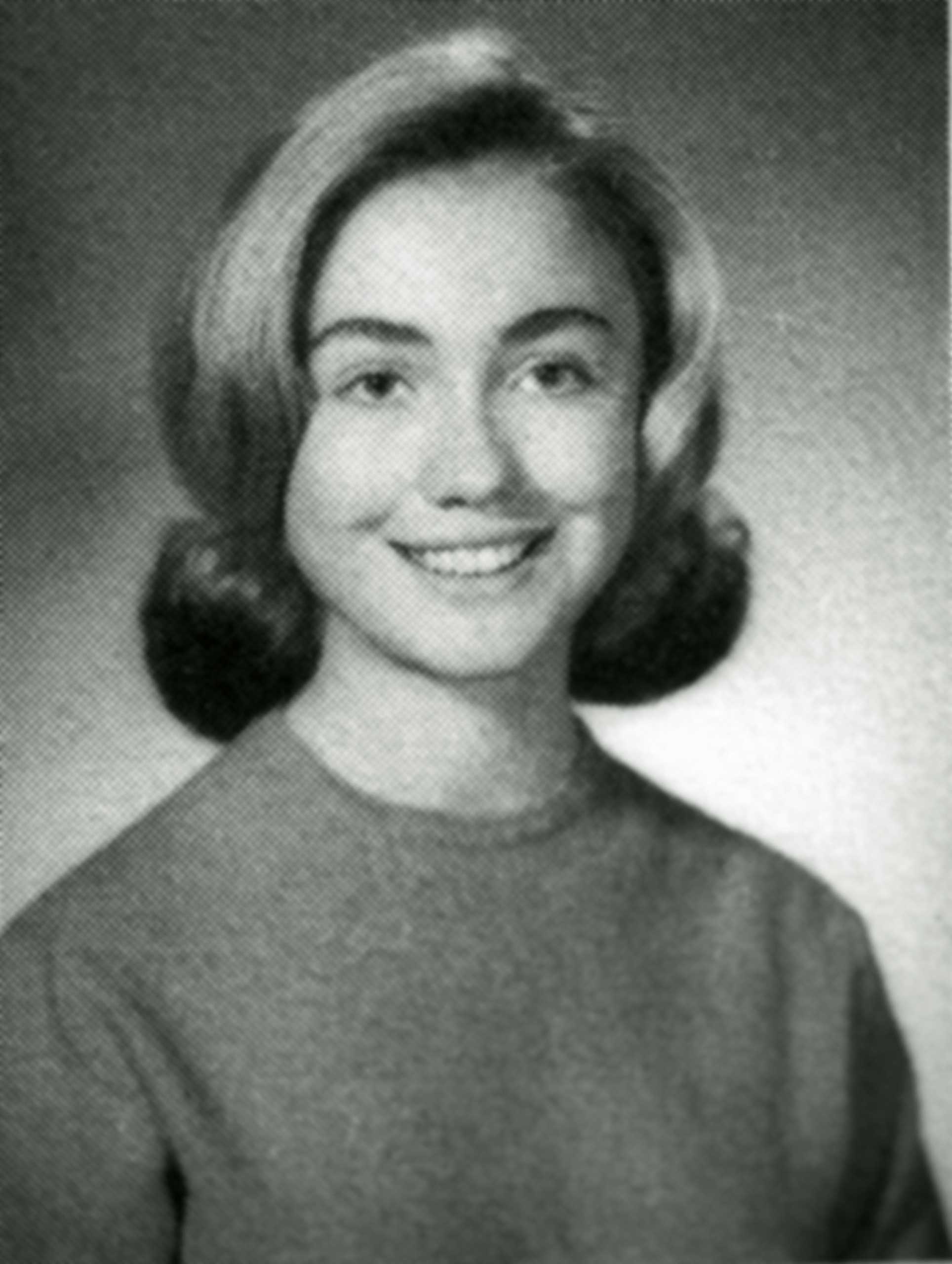
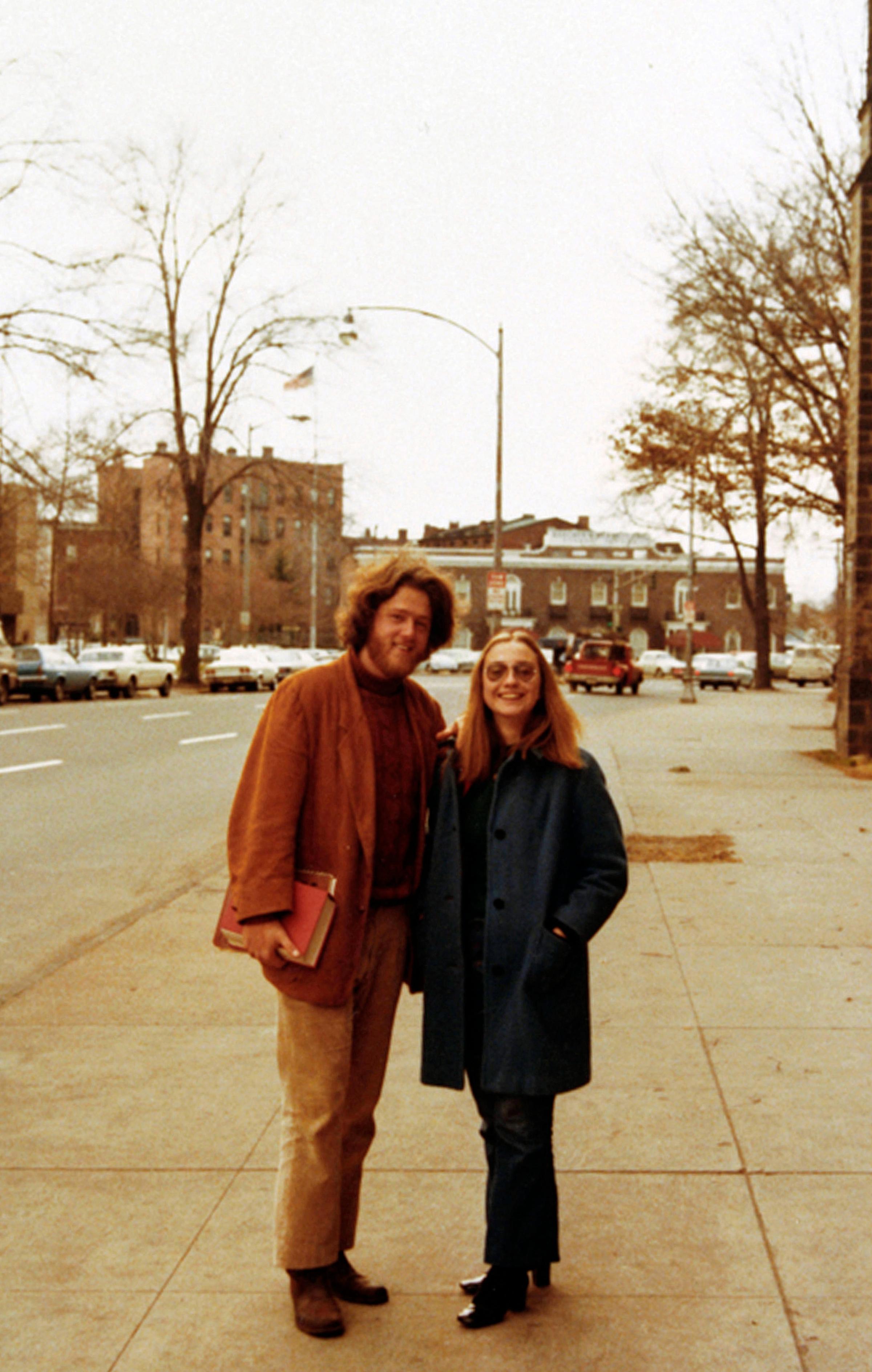
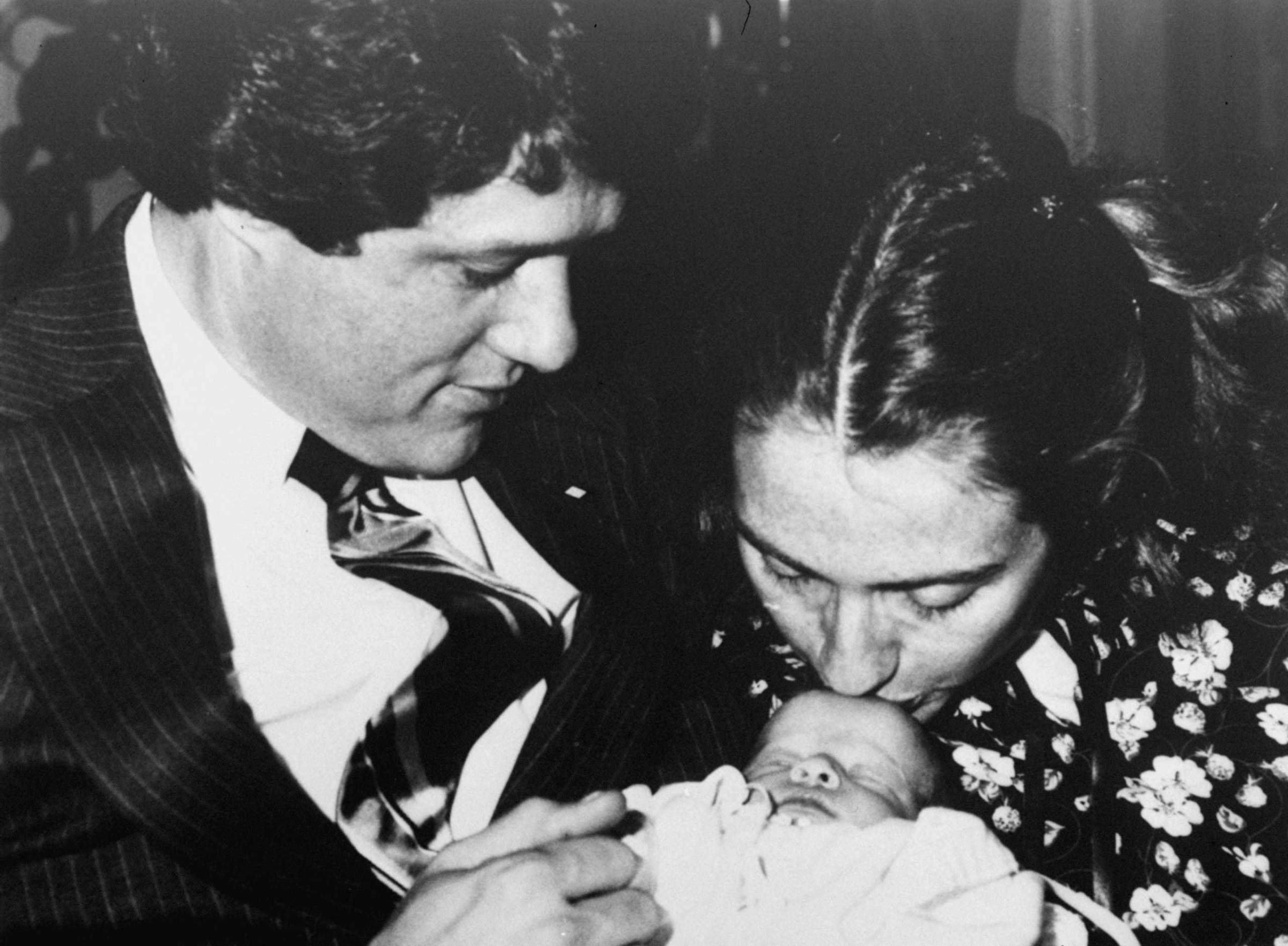
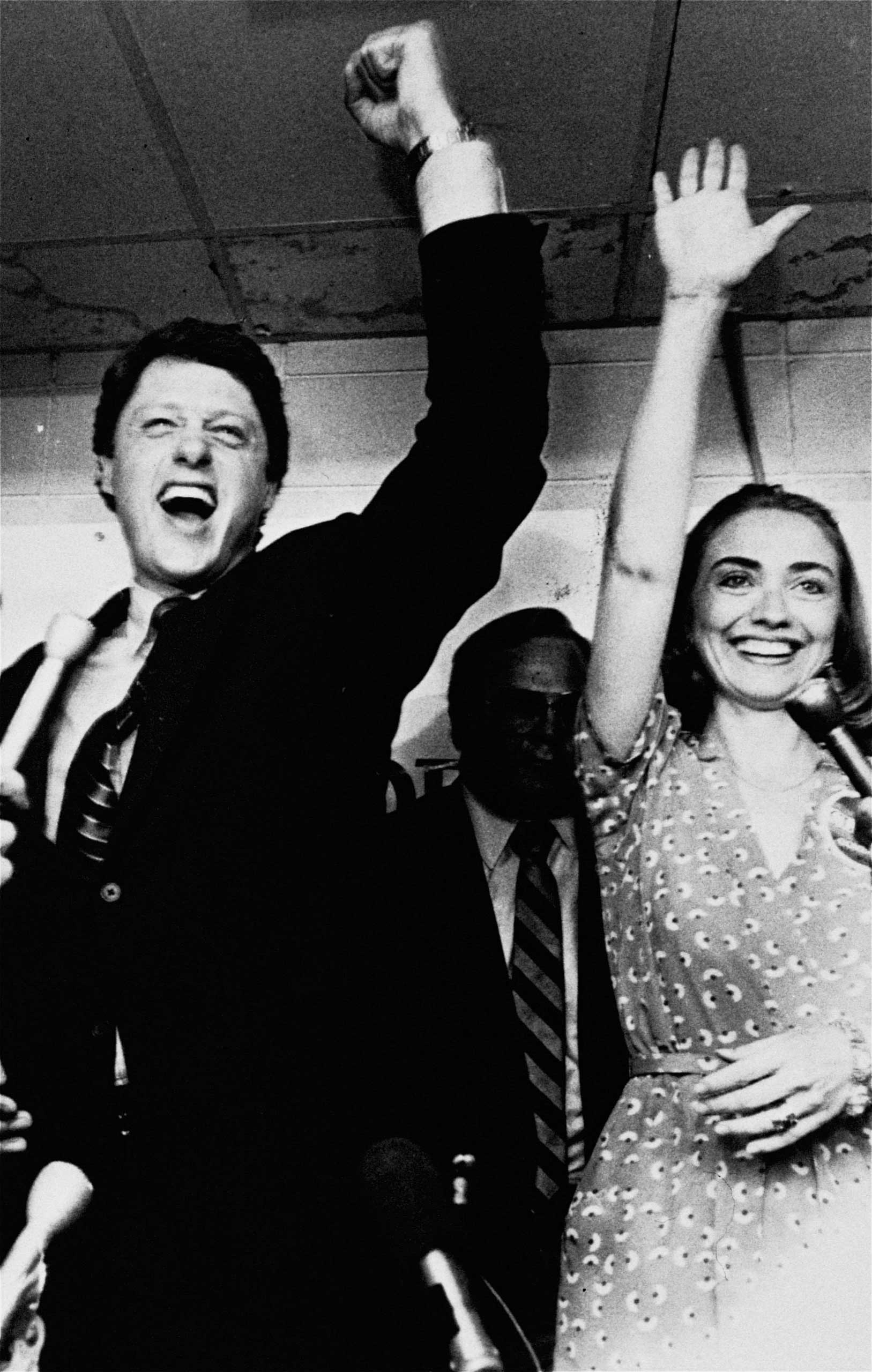
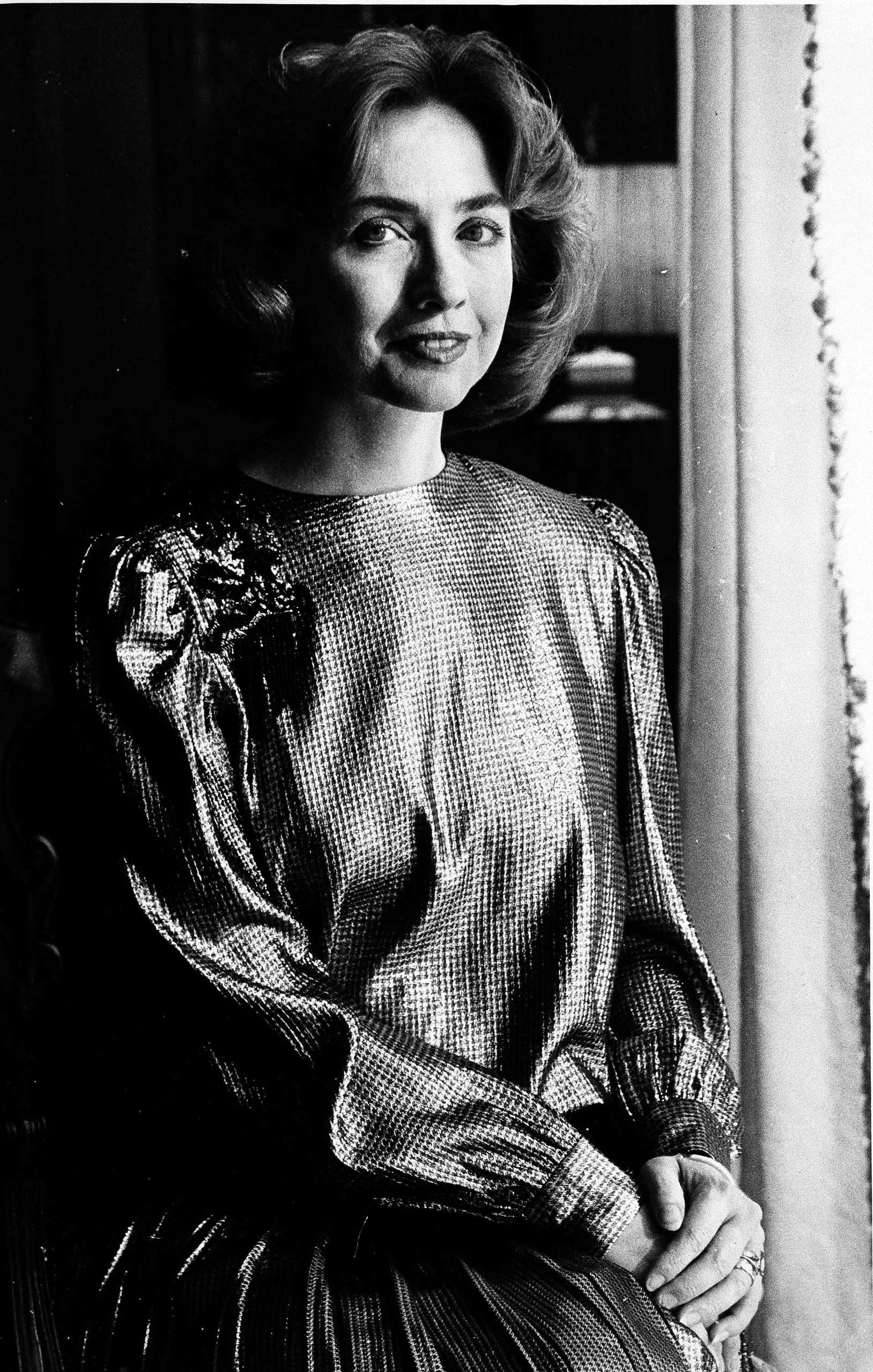
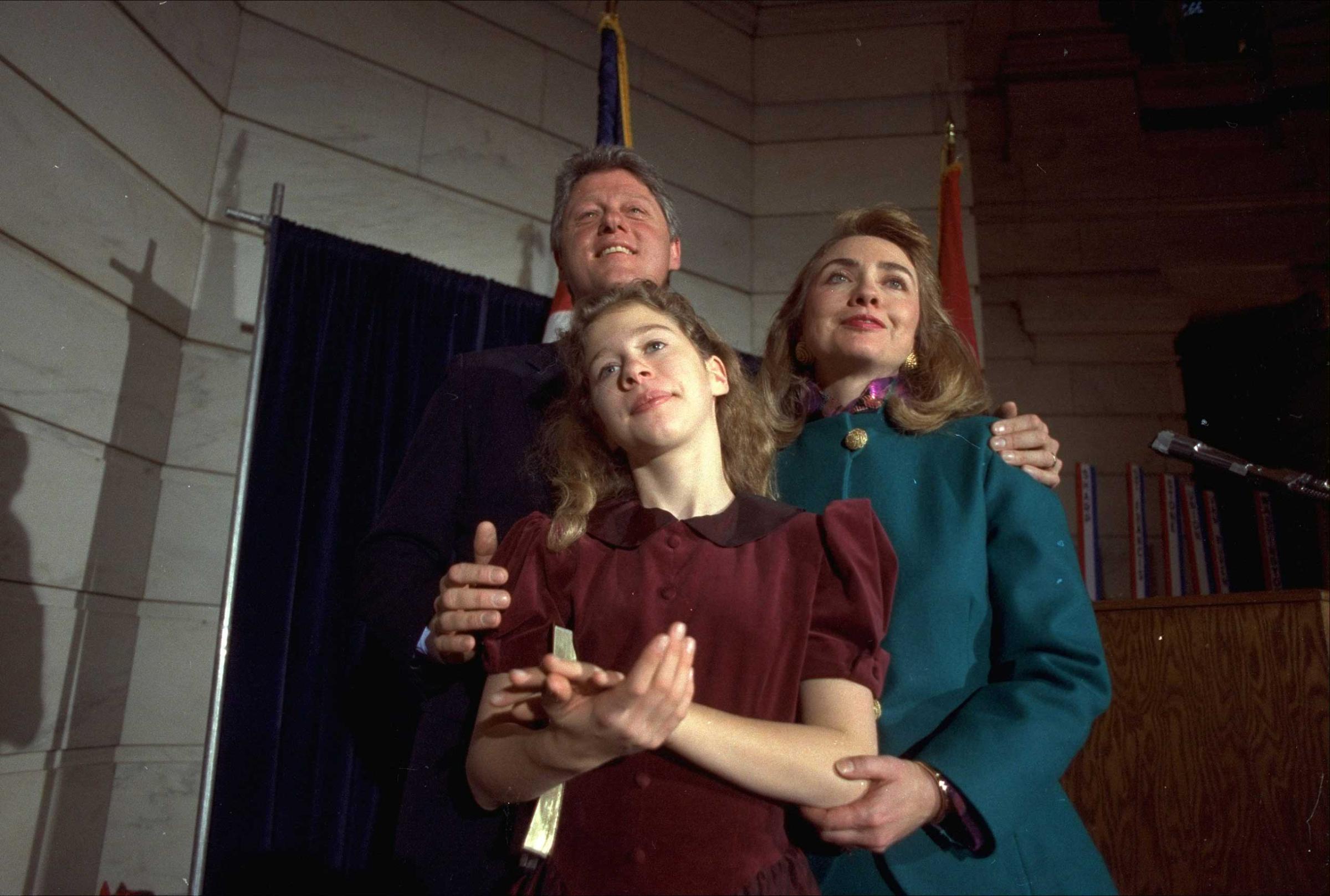
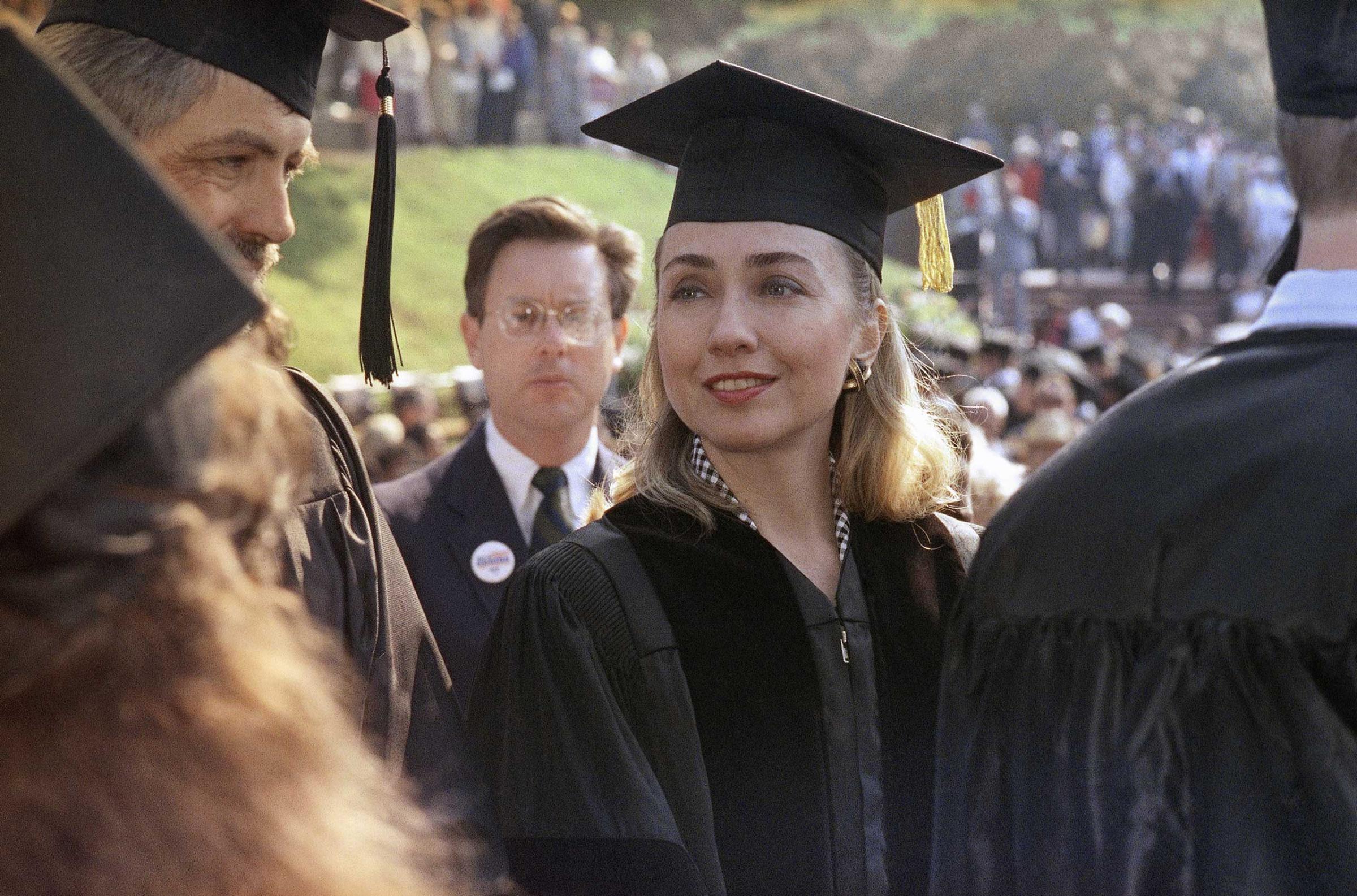
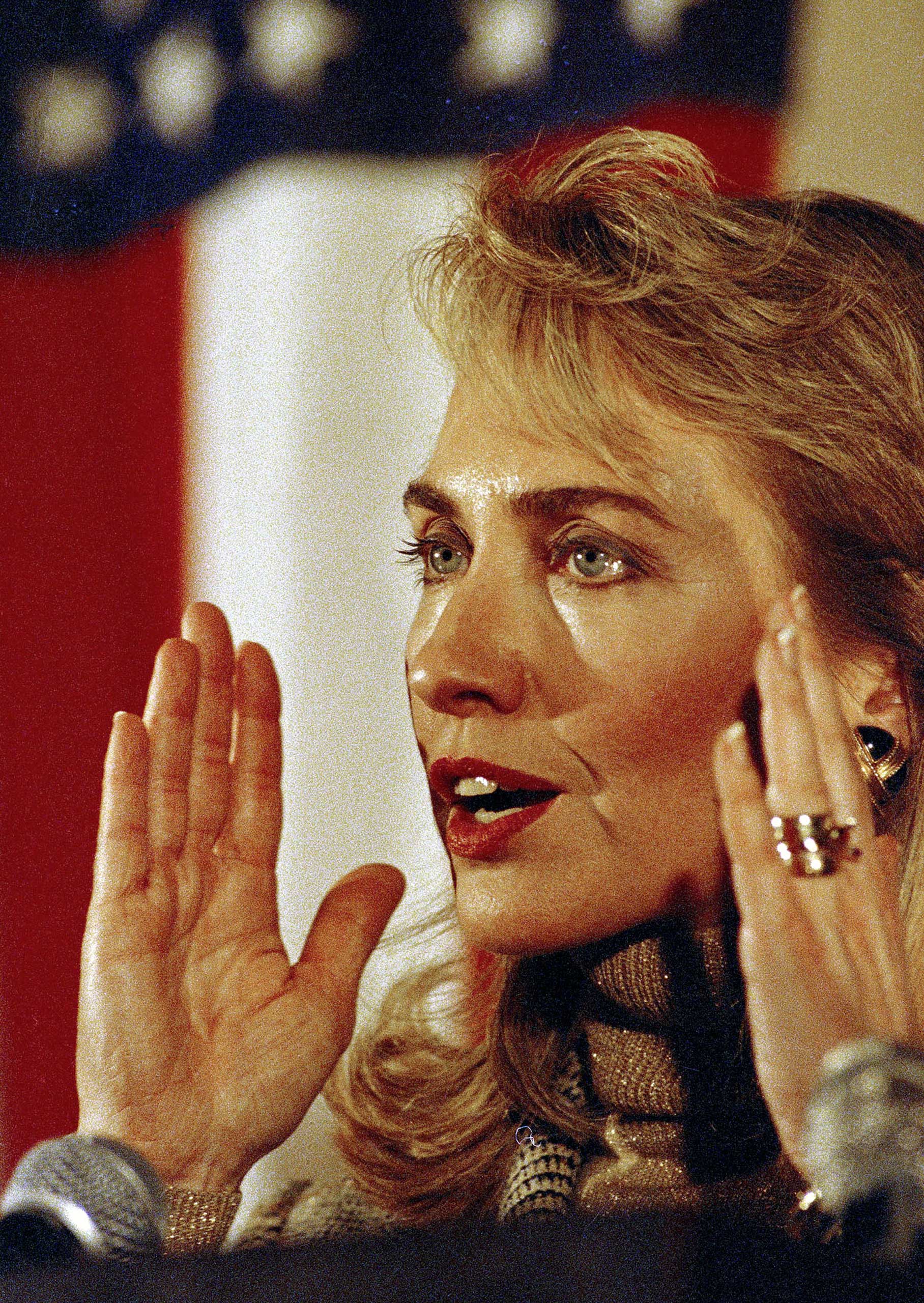
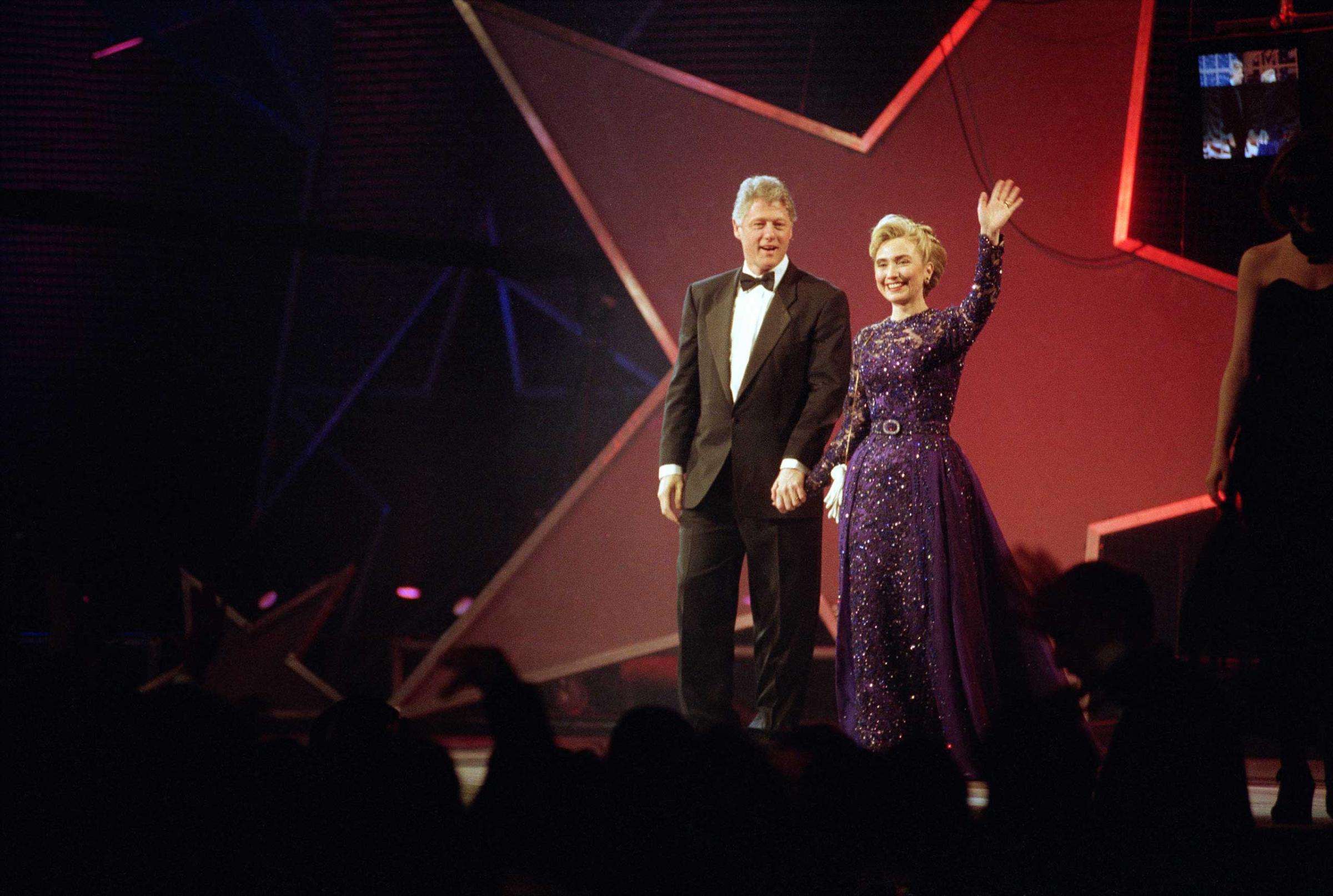
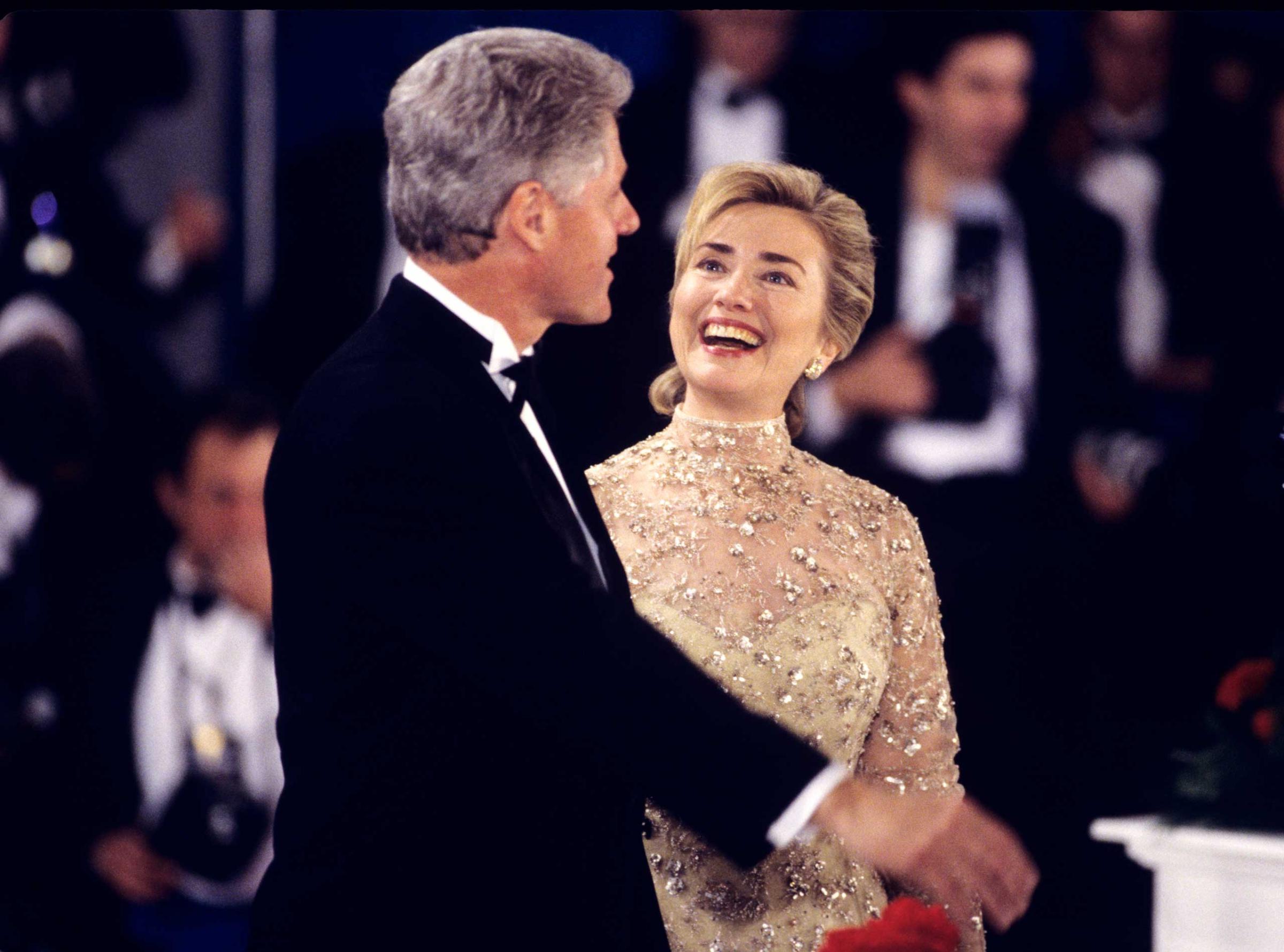
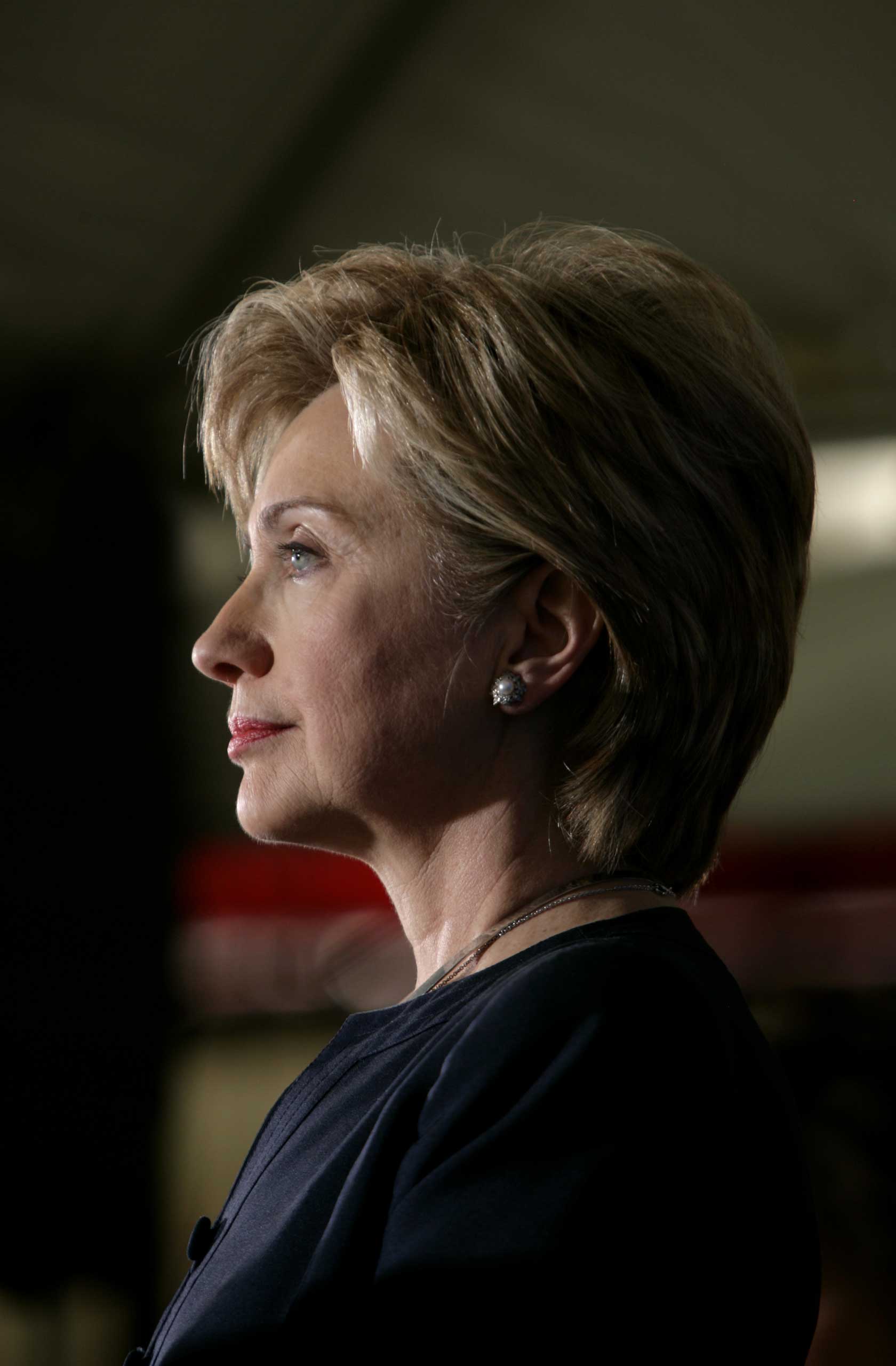
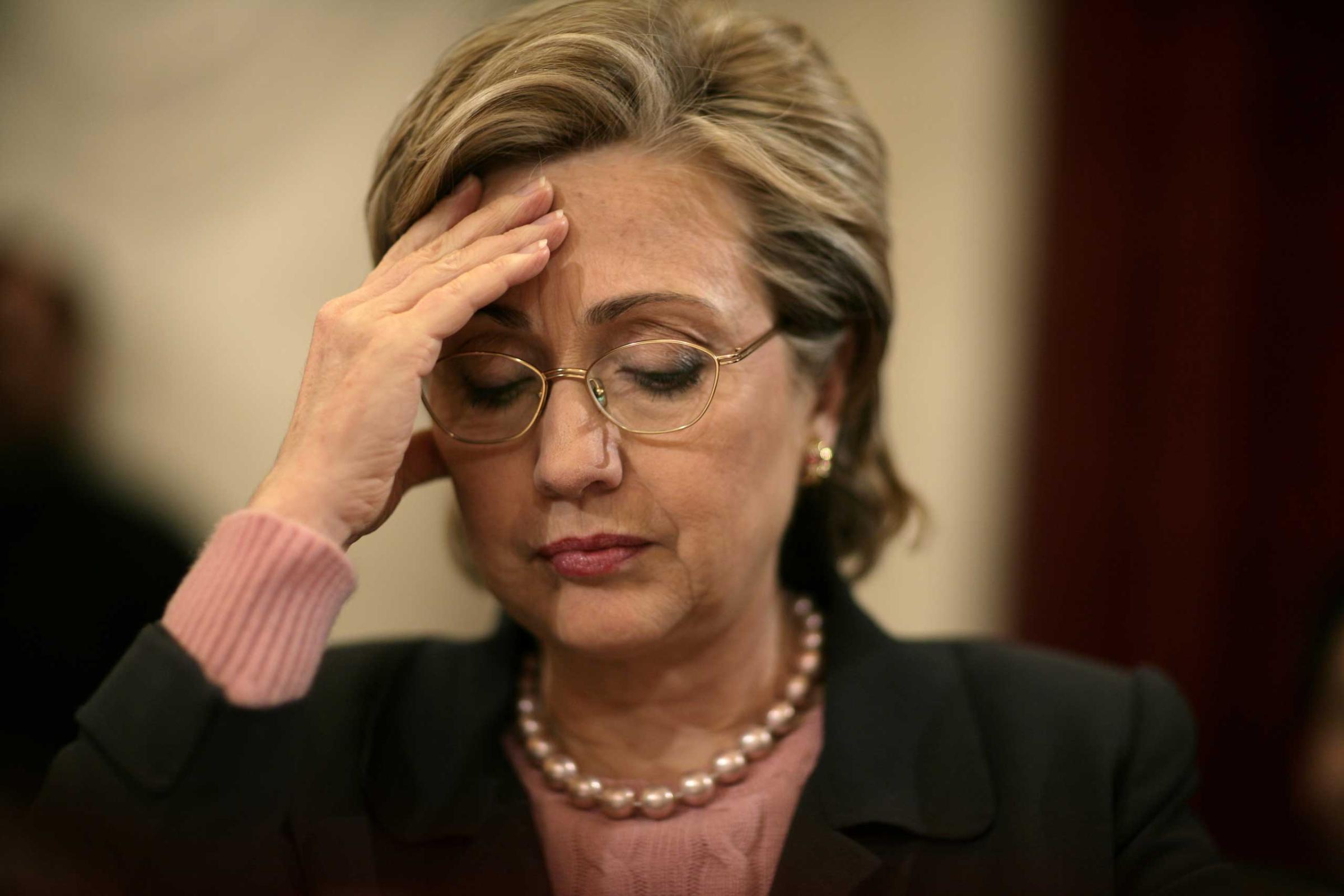
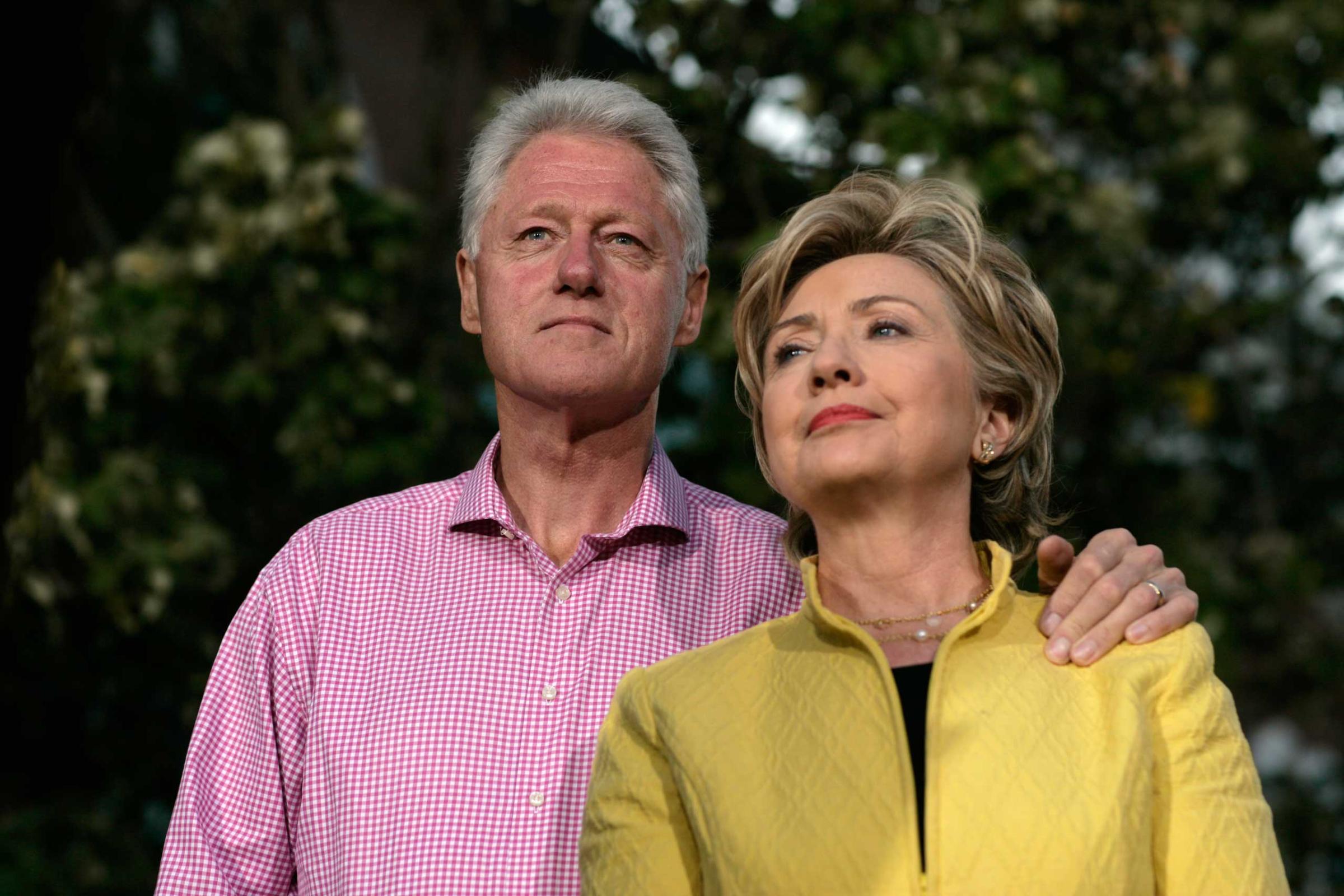
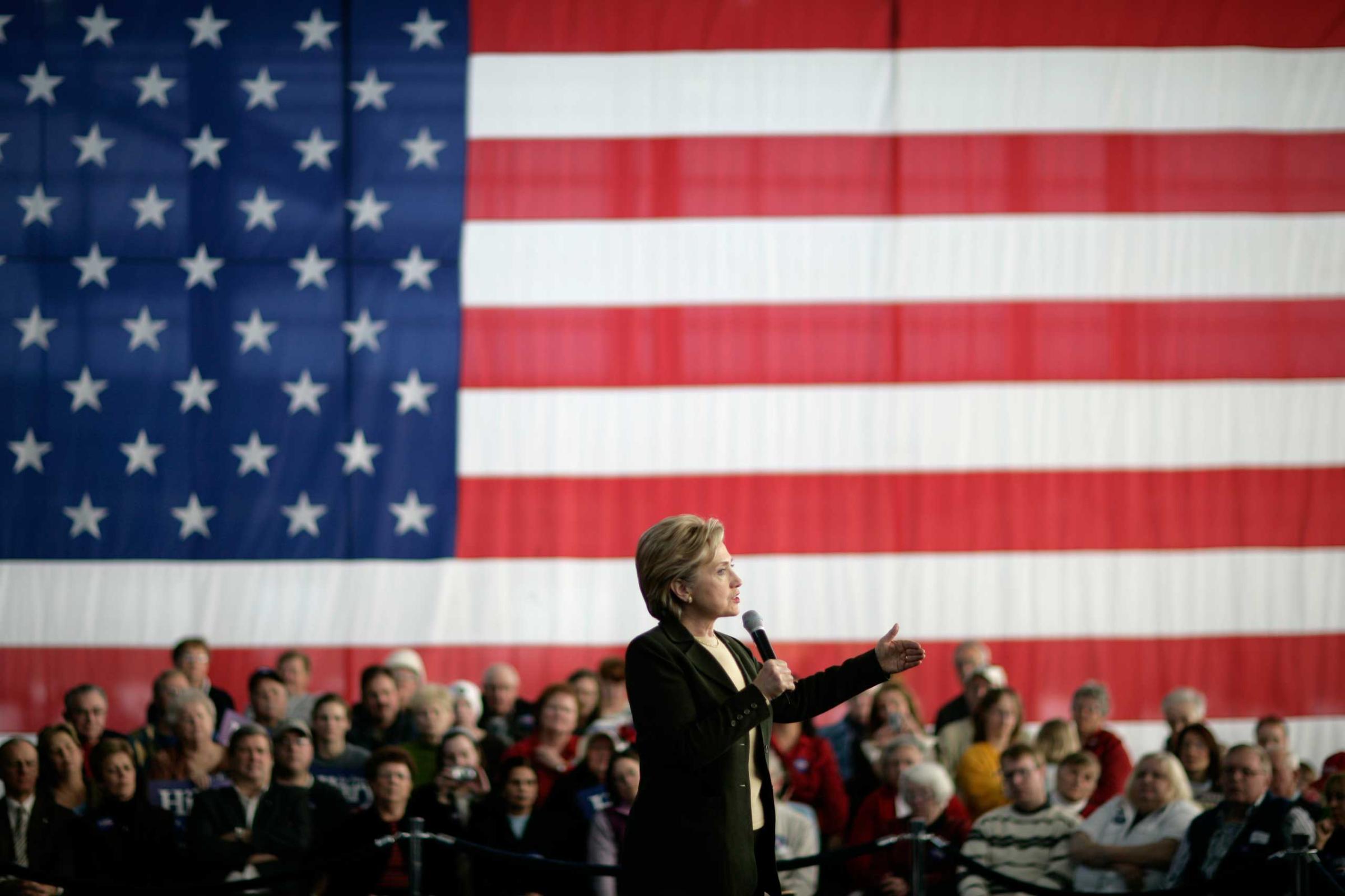
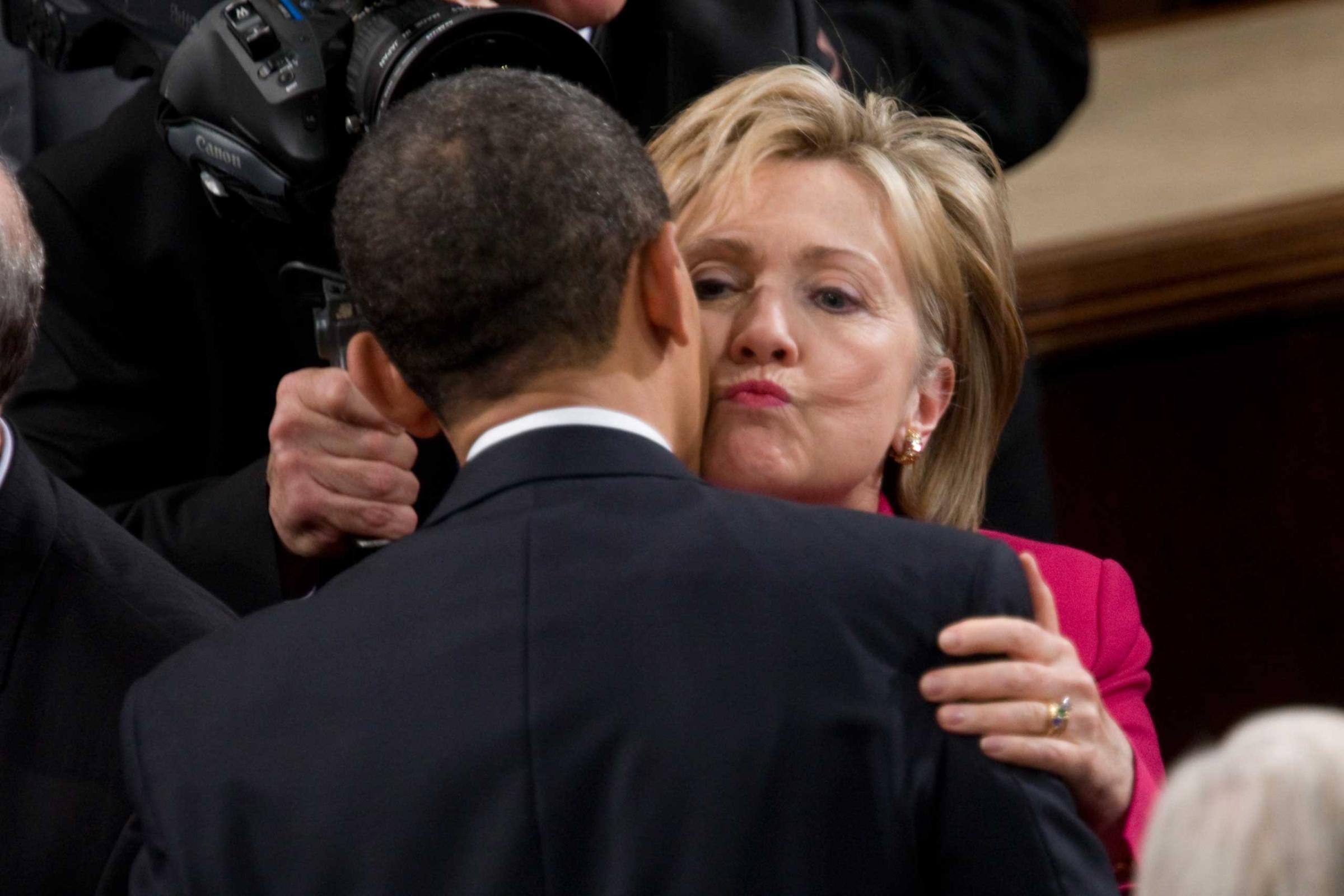
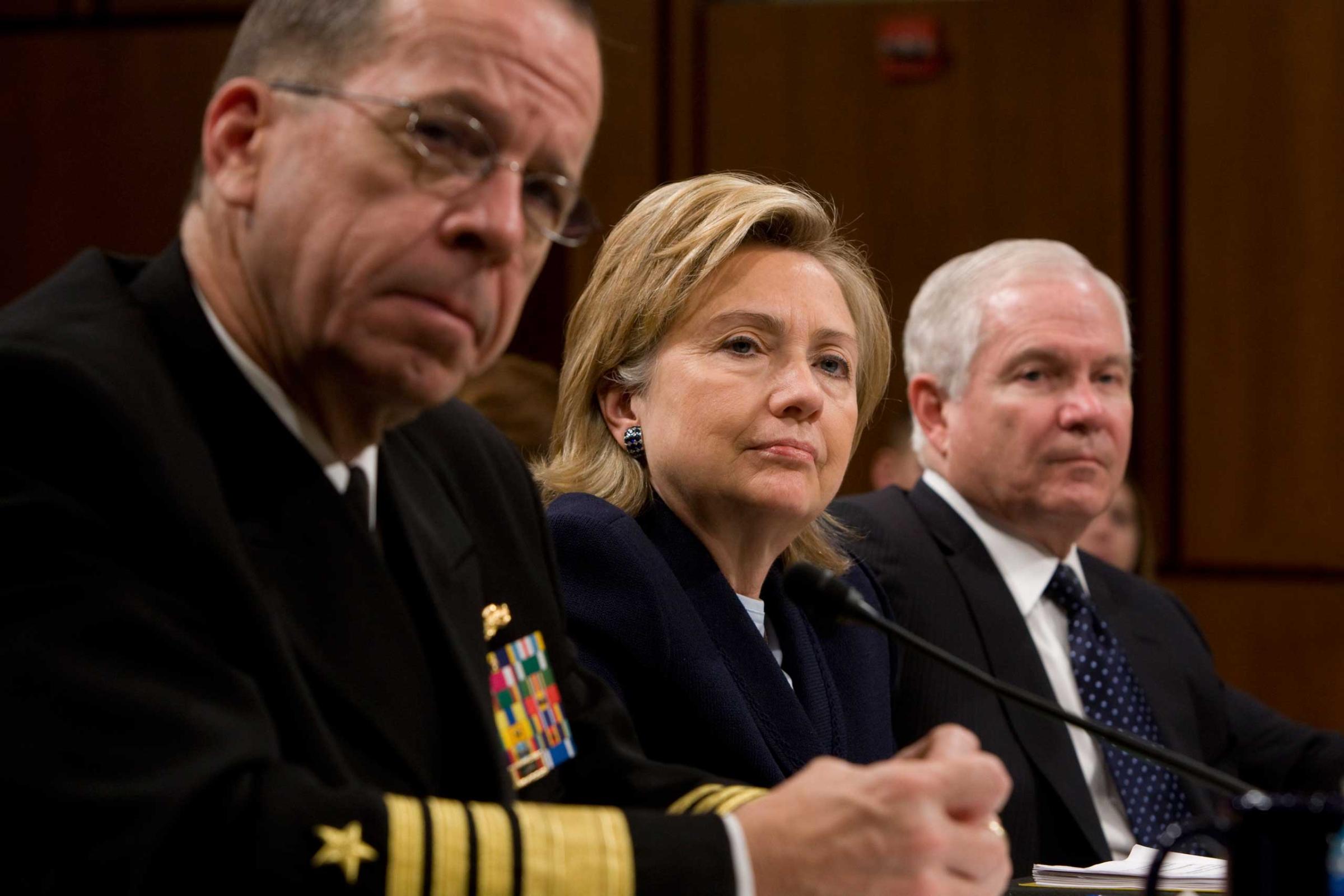
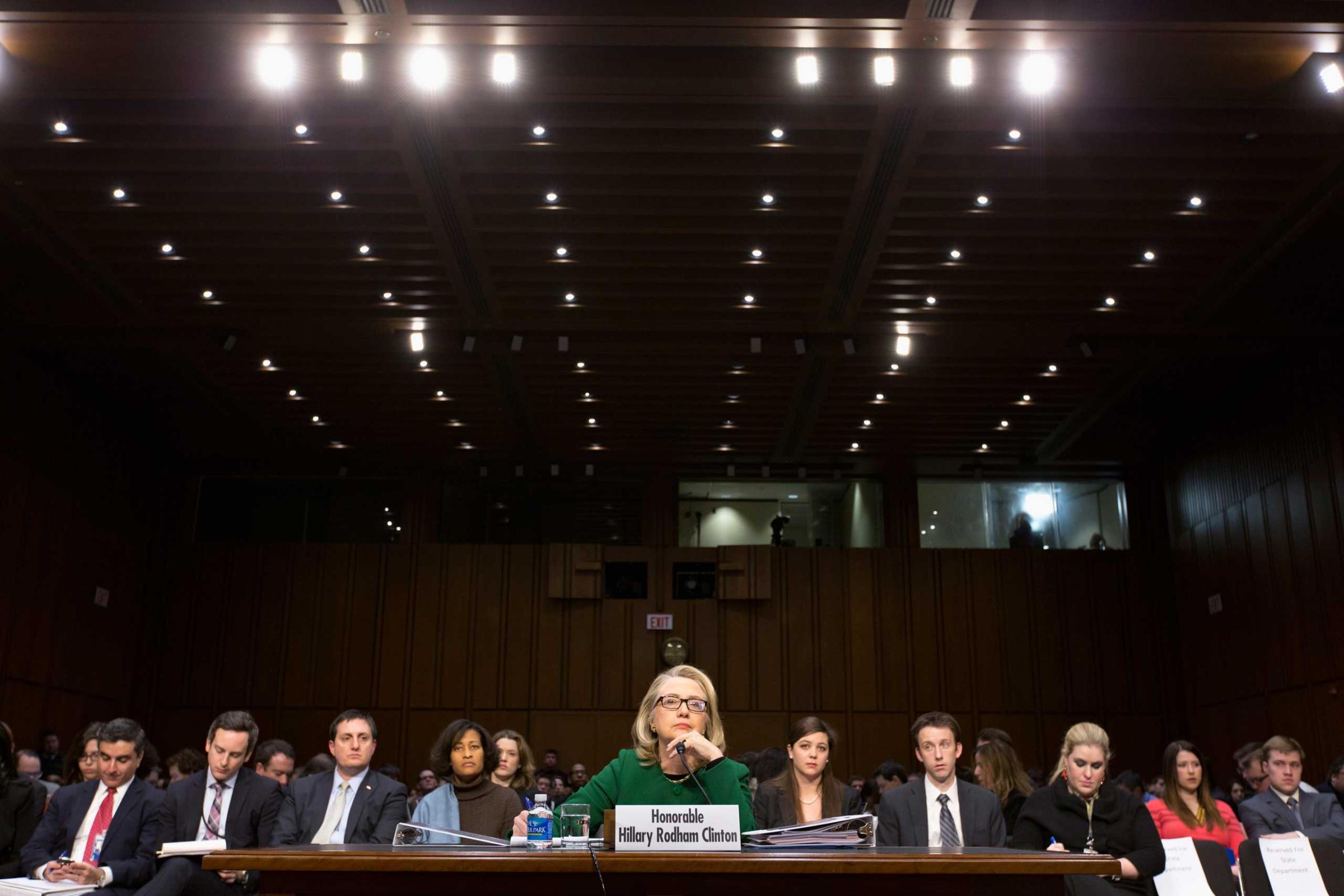
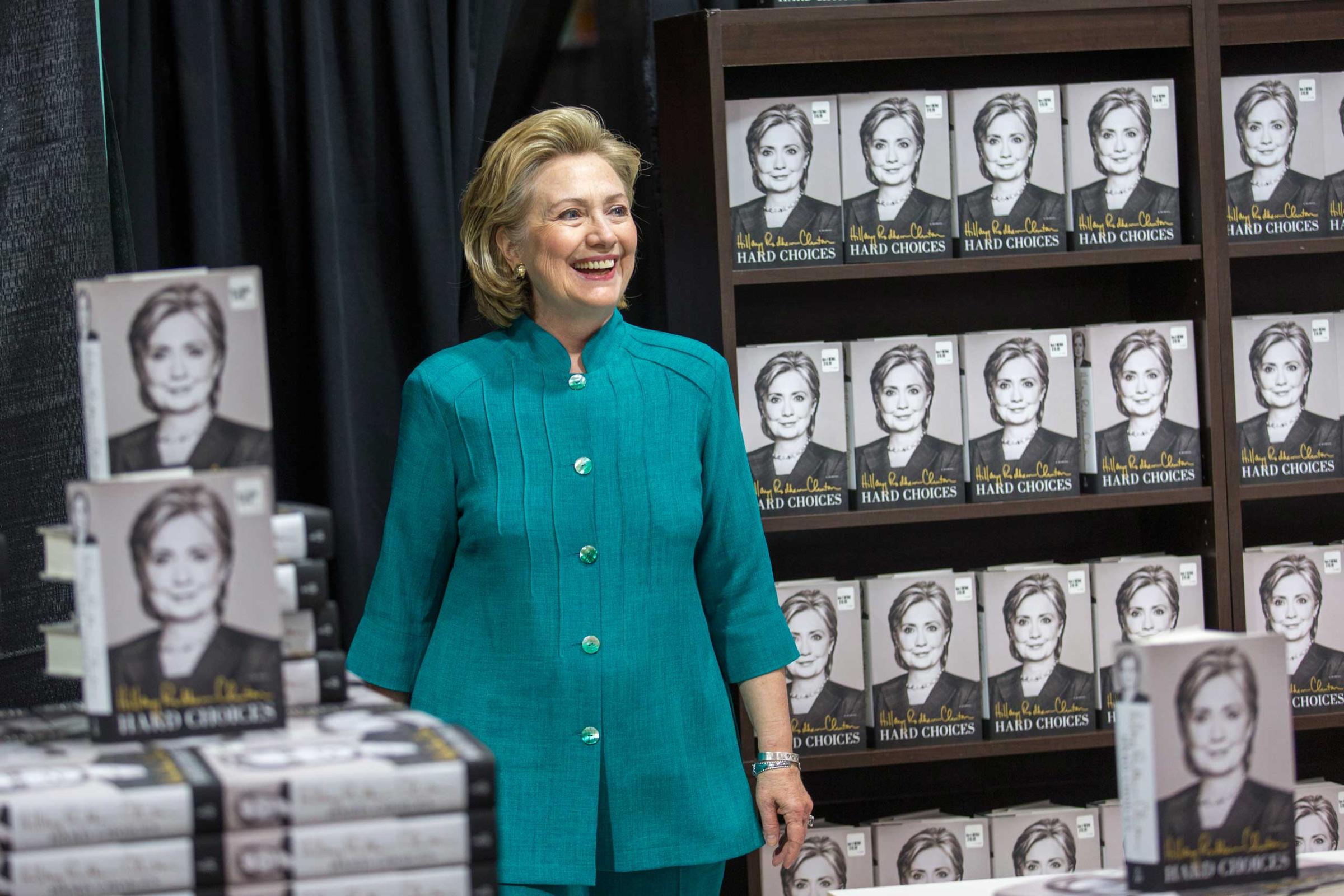
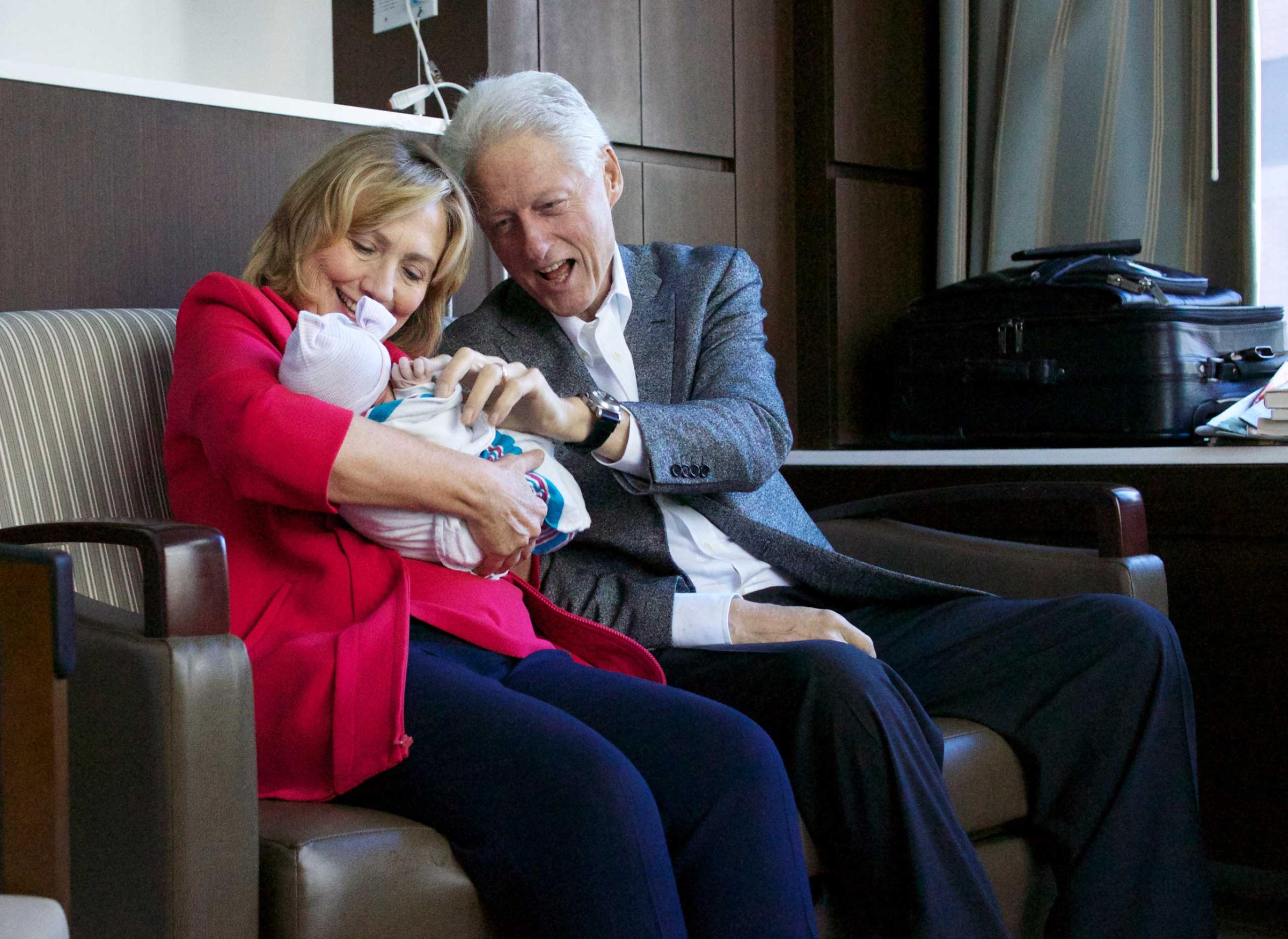
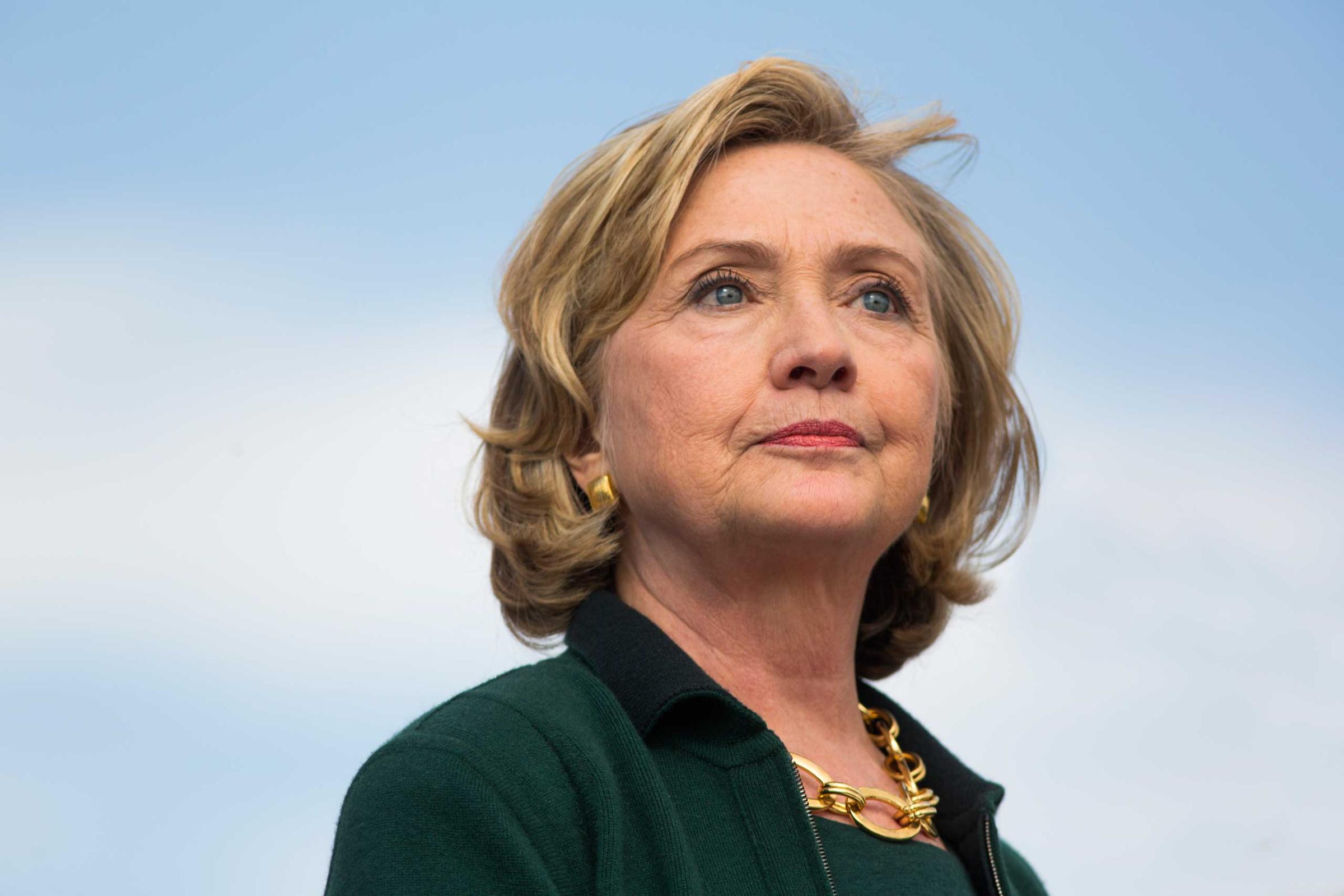
The schedules in the emails reflect a humble approach to the job, as someone who traveled to meet with people rather than summon them to her. She traveled to the Naval Observatory on one Tuesday in June 2009 for breakfast with Vice President Joe Biden. She shared lunch that day with Larry Summers, then the Director of the National Economic Council—and previously Bill Clinton’s Treasury Secretary—in the White House cafeteria alongside the 20-something aides who made copies and ran errands. For dinner, she shared noodles at Hunan on the Hill with Sen. Chuck Schumer, with whom she represented New York for eight years in the Senate.
Clinton’s career-long focus on girls’ education didn’t end when she became Secretary of State. In August 2009, Clinton inquired about a Yemeni girl, Nujood Ali, who at the age of 10 had asked for a divorce; two years later, a news report indicated Ali was bitterly unhappy and not going to school. “Is there any way we can help her?” Clinton asked the U.S. ambassador for global women’s issues in an uncharacteristically long email. “Could we get her to the US for counselling and education?” Next week, she followed up. “That’s good news,” Clinton wrote after finding out Nujood was indeed attending private school.
She also never lost her uncanny sense for the value of personal politics. When Sonia Sotomayor was named as Obama’s pick for the Supreme Court, she got a message from her chief of staff with a simple subject line: “Sonia Sotomayer,” misspelling her name. Clinton then messaged her assistant. “Can you get #s for me so I can call and congratulate her?”
In another note, longtime friend Marty Torrey messaged Clinton to alert her about the arrival of a newborn. At the end of the note, the one-time chief of staff to former Rep. John Sweeney added a note of encouragement: “Still think we need you as Pres.” Clinton forwarded the note to her assistants: “Pls do a congrats letter.” She made no acknowledgment of another White House run.
During another note with Torrey, she jokingly suggested that former Rep. Harold Naughton should become a regular contributor to Fox News: “Those shows need at least one sane realistic voice.”
Her wariness of the press comes through in other passages. The day a New York Post article appeared about her vacation with Bill Clinton in Bermuda, she emailed Abedin about the image. “Did you see the photo in the NYPost of Bill and me from yesterday?” she wrote. “It was after lunch but I didn’t see anybody w a camera so obviously a long lens from afar.”
There are also flashes of a demanding boss.
When a brutal snowstorm blasted the Washington region and shut down the government, Mills sent Clinton a note letting her know the State Department would be having a snow day. Not seeming to understand this, Clinton replied, “What does this mean for our schedules?” Mills replied that no one would be in the building. “What about … everyone who asked to see me? I have to come anyway,” Clinton declared in a Sunday evening message back.
The notes also depict a wife to a man as busy as she was. In one June email exchange, Abedin sent a note to her boss letting her know Bill Clinton—William Jefferson Clinton, or WJC—was making a stop to pick up jet fuel, and his longtime aide Doug Band had his cellphone on: “If u r still up, wjc landed in brazil for refuel. He should be on the ground for an hour or so. Call dougs cell.”
During another fast-developing moment, Clinton learned that her husband had agreed to become a Special Envoy for the United Nations’ response to a devastating earthquake in Haiti. News leaked from the UN before Bill Clinton had time to phone his wife to let her know of his new role. “Wjc said he was going to call hrc but hasn’t had time,” Band wrote to Abedin and Mills. Mills forwarded the message to her assistant. “You need to walk this to HRC if she is not gone,” Mills told the aide.
Between international diplomacy and running a sprawling department, she often turned to routine tasks and comforts. As Clinton was preparing for a two-week trip to Africa, aides were trying to find some time for her to look at new furniture for her house in Washington. “Are you around this week?” designer Rosemarie Howe asked Clinton in an email directly to the Secretary of State. “If you have any time we could look at coffee tables for the den.”
During another email exchange, she asked her assistant about the New York-grown apples that were always around her Senate office during the fall months. When she moved to Foggy Bottom’s State Department headquarters, she worried she might no longer be getting New York apples now that she didn’t represent the apple growers in the Senate. “Will we receive them this Fall? How can I buy some for personal use?”
Read next: Bernie Sanders Catching Up to Hillary Clinton in Iowa
Download TIME’s mobile app for iOS to have your world explained wherever you go
More Must-Reads from TIME
- Donald Trump Is TIME's 2024 Person of the Year
- Why We Chose Trump as Person of the Year
- Is Intermittent Fasting Good or Bad for You?
- The 100 Must-Read Books of 2024
- The 20 Best Christmas TV Episodes
- Column: If Optimism Feels Ridiculous Now, Try Hope
- The Future of Climate Action Is Trade Policy
- Merle Bombardieri Is Helping People Make the Baby Decision
Write to Philip Elliott at philip.elliott@time.com